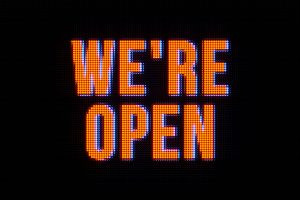Open Banking and TANGO: Open for More Business

The European Union is opening up the banking system. Whether account numbers, SEPA mandates or booking details – until now, only financial institutions have had access to this kind of data. The advantages of open and customer-centric ecosystems in banking. And how the TANGO project aims to make data flow securely and confidently.
Whether overnight money or fixed-term deposits – in these times of rising interest rates, accounts like these are worthwhile again. However, those who have deposited their savings in Germany with traditional banks, for example, are often left empty-handed in this regard: Customers of German savings banks tend not to benefit from the turnaround in interest rates. Financial service providers offer a solution for this: savers can use online brokers to invest their money with other institutions offering better conditions. Anyone wishing to use the service must register, provide proof of identity, open a clearing account and link their own current account. Once set up, savings can then be invested at home and abroad and earn interest.
Open Banking: The European Union opens up the banking system
Identifying yourself and registering first in order to open accounts and earn interest - something that currently involves effort, patience and paperwork will soon be quicker and smoother. The second Payment Services Directive (Payment Services Directive 2, PSD2 for short) is the European Union’s move to open up the banking sector. As a result, consumers will be able to use third-party services much more easily. “These licensed service providers (...) can offer payment initiation services, account information services and payment cards,” according to a brief study by the Fraunhofer Institute for Industrial Engineering IAO from 2022. “Now it is no longer just banks that are involved in the account data business, but also other players.” Open banking makes it possible.
PSD2 is reorganising cooperation in the financial market
From account numbers and SEPA mandates to booking details – until now, only the financial companies themselves have had exclusive access to customer data such as this. But: “The introduction of the Payment Service Directive 2 (PSD2) paved the way for greater financial disclosure,” writes the consulting firm Deloitte on its website. Whether FinTechs, insurance companies or InsurTechs: if information flows more naturally, confidently and securely in open ecosystems, new forms of collaboration will emerge across the board - with significantly less effort, patience and paperwork for all sides. The only prerequisite is that bank customers have given their consent.
Advantages for retailers, insurers, banks and consumers
Individualising insurance policies, offering white label services, simplifying payment procedures and integrating external account and custody services such as interest rate brokers digitally from end to end – open markets offer advantages for retailers, insurers, institutions and customers. “This can go so far as banks and financial service providers themselves providing platforms and offering not only their own products to customers but also those of their competitors,” the Fraunhofer short study states. In practical terms, this means that if data flows bidirectionally in order to integrate third-party services into your account management, personal investments and services can be kept in view centrally via a dashboard, for example. The situation is different in closed ecosystems: If you want to check transactions, earnings and applications, you have to log in separately everywhere.
TANGO project: New services for banks and their customers
The TANGO project is also working on open, customer-centred ecosystems in which information does not move along one-way streets but across them. Under the title “Digital Technologies ActiNg as a Gatekeeper to information and data flOws”, more than 30 partners from 13 countries have been driving the European data economy forward since September 2022. Based on a citizen-centred and trustworthy concept, the consortium will implement a platform in five pilot projects by 2025 that will allow data to be shared in a protected and self-determined manner. It will also be used to create new services for banks and their customers. Open banking concepts and Gaia-X underpin the project.
Gaia-X opens up opportunities for open markets
Gaia-X provides all the building blocks for an open financial world that turns institutions into platform providers and dissolves monolithic business models with data-centred products. Standardised software elements that are necessary to open up opportunities for players. Opportunities that only arise when information flows – bidirectionally and across the board – on a decentralised and distributed data infrastructure. Whether online banking, direct banks or payment service providers – according to Deloitte, this is just the tip of a development that will make open banking possible.
From telecom providers and the utilities industry to smart devices and public authorities, open banking is changing how the financial sector deals with assets, customer access, sales interfaces and data. A brave new banking world that consumers are also embracing: According to Ernst & Young’s Fintech Adoption Index from 2019, 64 per cent of consumers in Germany already use the services of financial service providers.